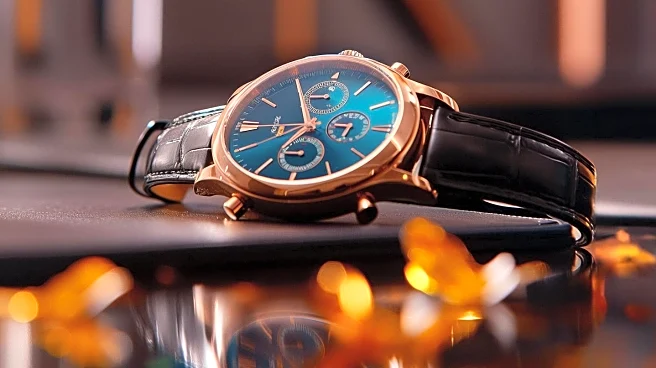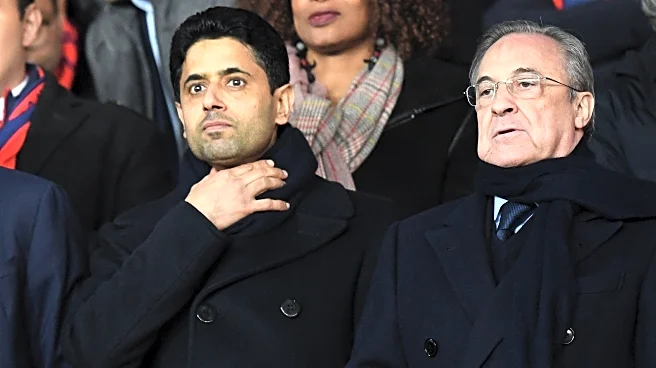What's Happening?
In Paris, a watch party hosted by fashion influencer Lyas attracted approximately 2,000 attendees at La Caserne, a venue known for supporting emerging brands. The event was organized to simulcast Matthieu Blazy's debut Chanel show, which took place at the Grand Palais. Despite Lyas not being present, having secured a seat at the actual Chanel show, the watch party was lively, with attendees queuing since noon. The event reached full capacity, leaving hundreds outside hoping to catch a glimpse or gain entry to the afterparty. The watch party was part of a series hosted by Lyas in various cities, including London and Milan, during the autumn fashion season.
Why It's Important?
The watch party highlights the growing influence of fashion influencers like Lyas in democratizing access to high-profile fashion events. By hosting such gatherings, influencers can bridge the gap between exclusive fashion shows and the general public, particularly appealing to younger audiences such as Gen-Z. This trend reflects a shift in the fashion industry towards inclusivity and broader engagement, potentially impacting how brands approach event marketing and audience interaction. The success of the watch party series underscores the demand for accessible fashion experiences and could encourage more brands to collaborate with influencers for similar events.
What's Next?
The success of Lyas' watch party series may inspire other influencers and brands to host similar events, further democratizing access to fashion shows. As the fashion industry continues to evolve, there may be increased collaboration between brands and influencers to create inclusive experiences. This could lead to new marketing strategies and event formats that prioritize audience engagement and accessibility. Additionally, the positive reception of these events might prompt brands to consider more open and interactive approaches to showcasing their collections.
Beyond the Headlines
The watch party's success also raises questions about the traditional exclusivity of fashion shows and the potential for change in industry norms. By offering free entry and refreshments, the event challenged the notion that high fashion is only for the elite. This democratization could lead to broader cultural shifts in how fashion is perceived and consumed, encouraging more diverse participation and representation within the industry.











